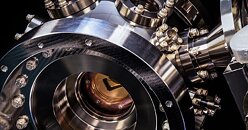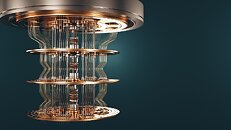XMG Announces the Fusion 15 and Core 15 Gaming Laptops
With the XMG FUSION 15 and CORE 15, XMG unveils its first 15.3-inch laptops in 16:10 format. The two compact devices, which are very similar except for a few details, differ primarily regarding their CPUs: the FUSION 15 is powered by Intel's Core i9-14900HX or i7-14650HX and either an NVIDIA GeForce RTX 4060 or 4070, while the CORE 15 combines an AMD Ryzen 7 8845HS with an RTX 4060. Apart from that, the gaming laptops, which weigh around 2 kg and are 21.9 mm high, offer a WQXGA display with a brightness of 500 nits and an almost entirely aluminium chassis with a clean and elegant design.
The design language of the XMG FUSION 15 (E24) and the XMG CORE 15 (M24) focuses on understated elegance. The laptops share an identical, black anodised and torsion-resistant aluminium chassis. At 342.5 x 245 x 21.9 mm, these two 15.3-inch devices are very compact, while a reduced weight of just 2.0 kg (XMG CORE 15) or 2.1 kg (XMG FUSION 15) offers good portability.
The design language of the XMG FUSION 15 (E24) and the XMG CORE 15 (M24) focuses on understated elegance. The laptops share an identical, black anodised and torsion-resistant aluminium chassis. At 342.5 x 245 x 21.9 mm, these two 15.3-inch devices are very compact, while a reduced weight of just 2.0 kg (XMG CORE 15) or 2.1 kg (XMG FUSION 15) offers good portability.







